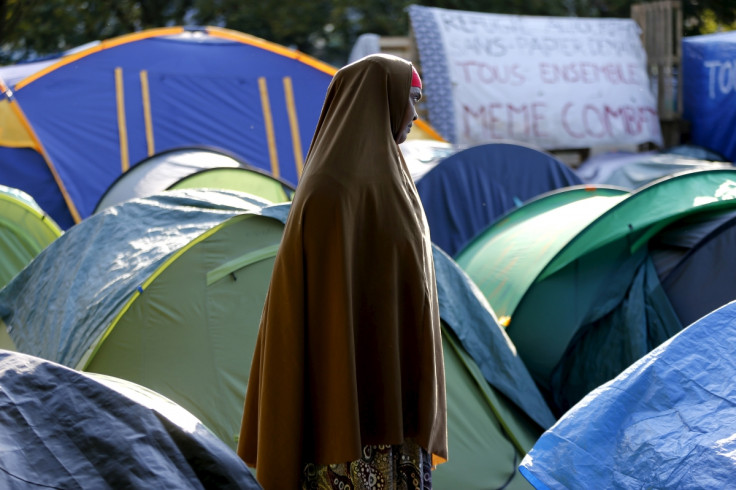Refugee crisis: Belgium flies back 100 disillusioned Iraqi migrants 'who'd rather die at home'

Belgium has flown back to Baghdad more than 100 Iraqi migrants who volunteered to be repatriated, including some that claimed life as asylum seekers was so hard they preferred to die at home. Part of a joint pilot initiative run by Brussels and the International Organisation for Migration (IOM), the charter flight took off on 1 February, as EU governments were increasingly focusing their efforts to curtail the migrant intake on deportations.
The 106 passengers were all Iraqis whose asylum request had been turn down, or had agreed to be sent back home with their application still pending. Many said they had grown disillusioned after arriving in Belgium, as they found the situation was worse than they expected.
A man said that although Iraq is engulfed in war and violence he considered returning was a better option to remaining in a squalid refugee camp. "I was living in a tent, [with] bad services, bad food, bad everything," he told Vtm Nieuws while waiting boarding. "I am very happy to die there, in my country. I know when I am back I am dead, because of the war."
Belgian migration minister Theo Francken said a growing number of migrants were volunteering for repatriation, particularly since September 2015. Last year 3870 people, including 1014 Iraqis were sent back to their home country, against only 57 in the whole 2014, according to the IOM.
"They think that once they arrive here they will get €3,000, a car, an apartment and that this is the land of milk and honey," Francken told VRT. "Then they sleep on a cot in a dormitory, which is not really what they expected and what they had been promised by smugglers."
Especially for failed applicants, the limited prospects of irregular life in Belgium and difficulties for family reunification were key in the decision to return, which was made more appealing by a rich one-year support programme.
"The returnees benefit from reintegration assistance back home, which may include micro-business support, temporary accommodation, job placement and provision of essential household goods," said IOM spokeswoman Geraldine D'Hoop. "This assistance is provided in-kind – no direct cash support".
The Belgian initiative followed a recent EU trend that has seen governments vowing to enforce strict repatriation plans in a bid to cut net migration and make their country less appealing to would-be-refugees. On 1 February, Germany's interior minister Thomas de Maiziere visited Kabul in a bid to reduce the number of Afghanis coming to Germany. Earlier, Chancellor Angela Markel told Syrians and other refugees they were expected to go back to their homelands once the security crisis there was over. "If there is peace in Syria and [Islamic State] is defeated in Iraq, we expect you to return to your homelands, with the knowledge of what you have received from us," she said.
Meanwhile, Austria followed Sweden in announcing it would deport 50,000 failed asylum applicants over the next few years. Last week Stockholm was first to publicise plans to expel up to 80,000 people.
© Copyright IBTimes 2025. All rights reserved.






















